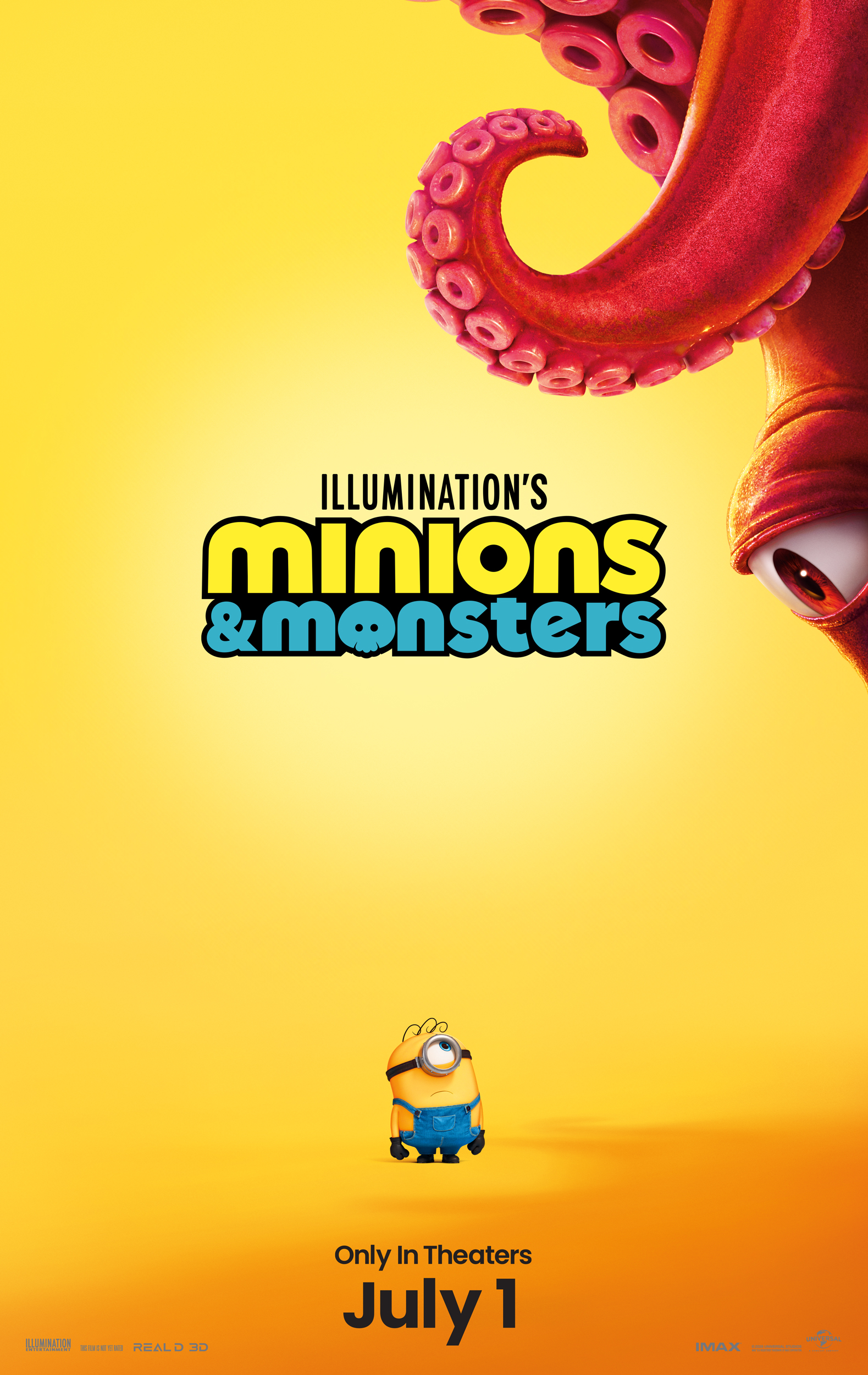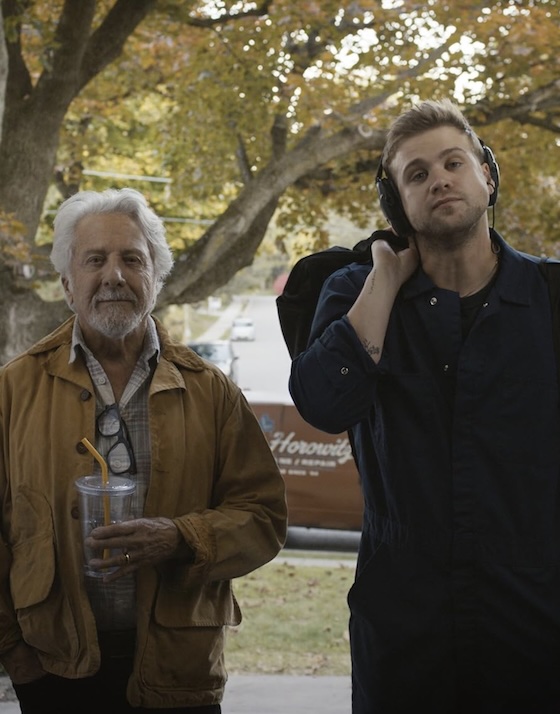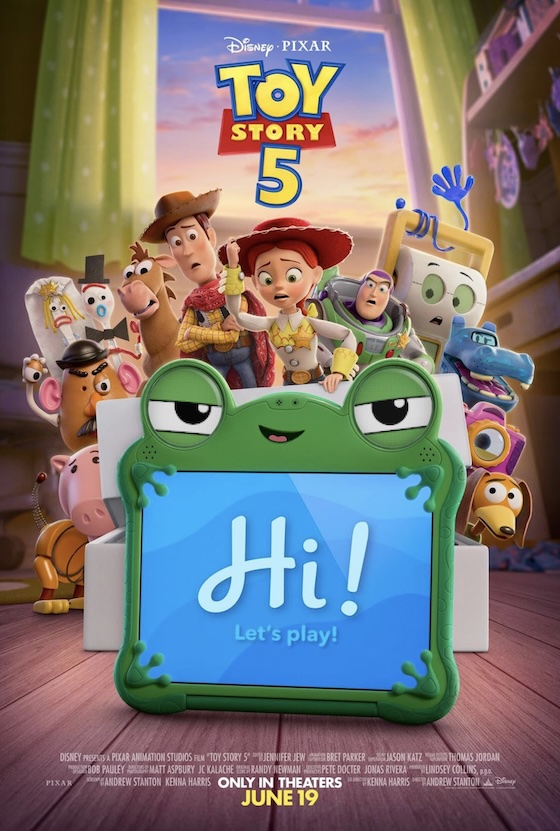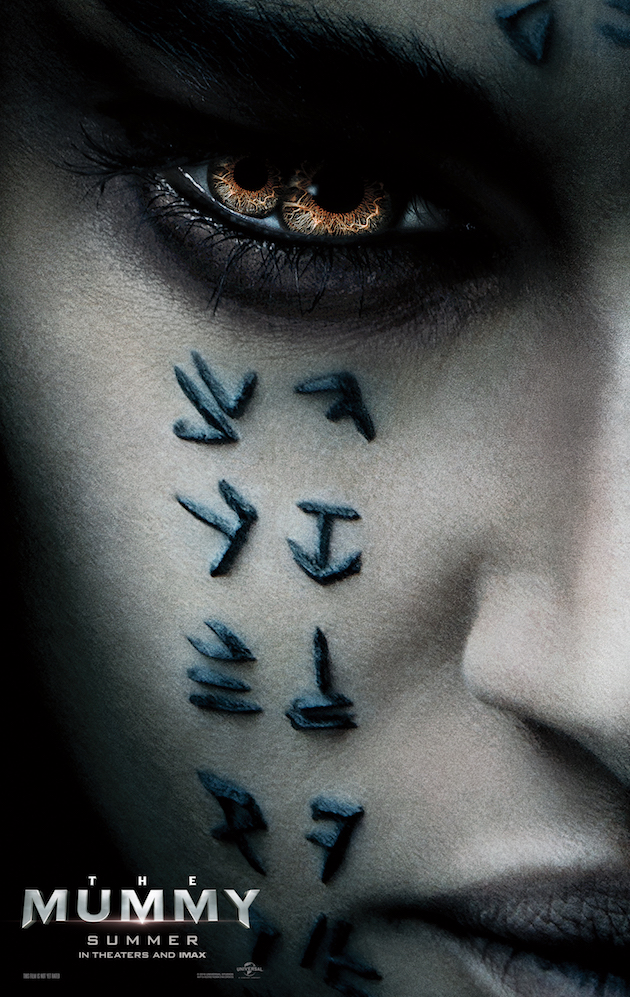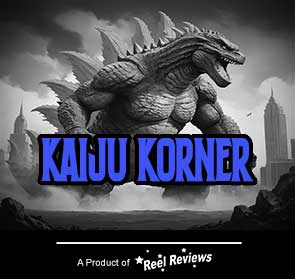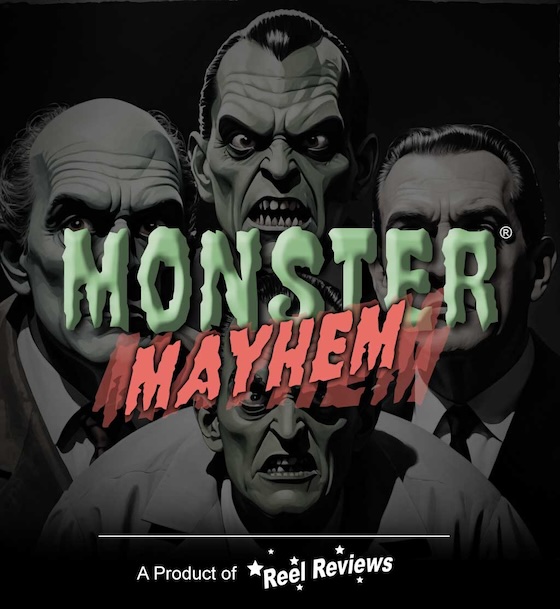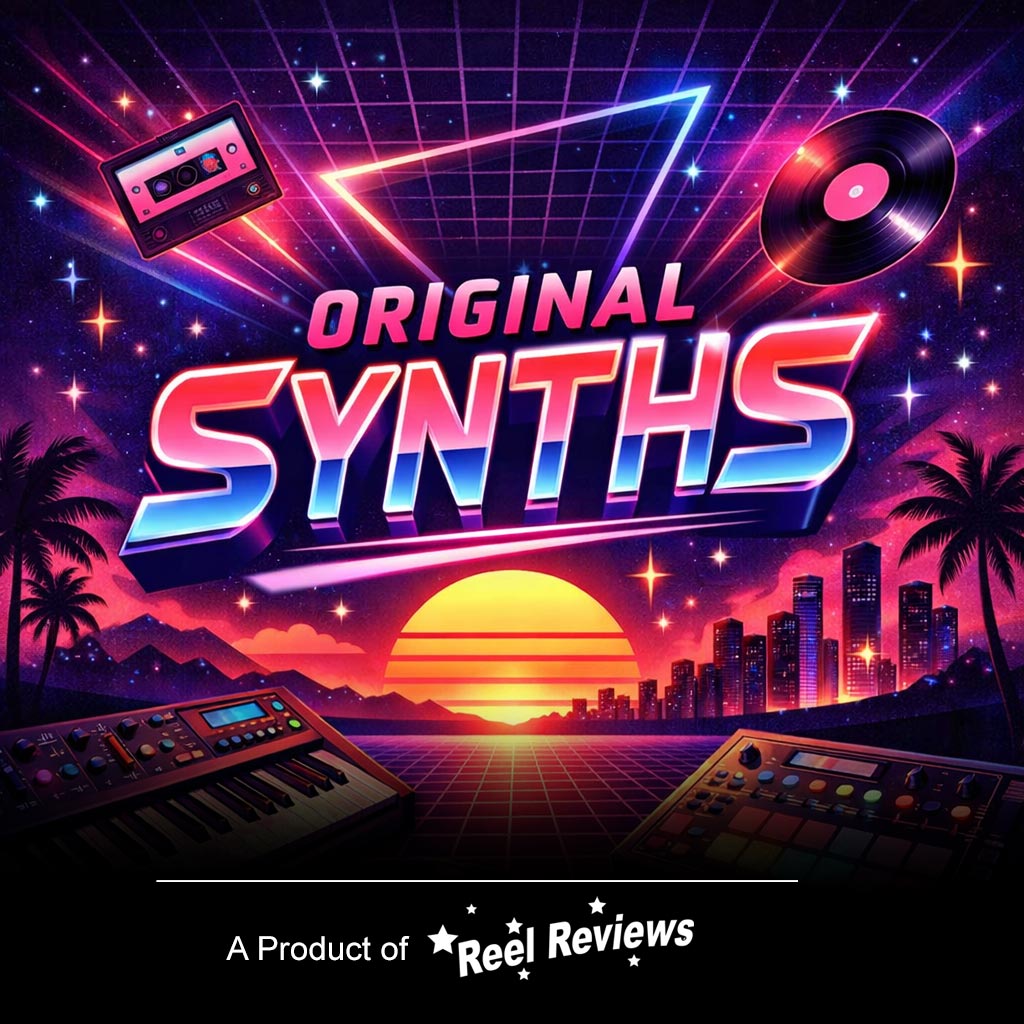{2jtab: Movie Reviews}

|
My love of film began as a four-year old in 1979 being taken to a small town drive-in, and, for the first time in my young life, being completely transfixed by what unfolded before me. Watching Star Wars was remarkably formative for me; it engrained a deep love of movies within me, it set a clear path ahead for what I would become as an adult.
I write films, review them, write books, and devour storytelling in all its guises because of Star Wars, and I am but a small speck in a vast ocean of people whose lives were influenced by the arrival of that galaxy far, far away…
To that end, some 30+ years later, here is a lifelong lover of Star Wars, telling you what he thinks of Lucas’s saga…
A LITTLE HISTORY
George Lucas’s versions of how this series came to be vary in degrees but essentially he wanted to make a movie about one of his childhood favourites: Flash Gordon. Failing to secure the rights, George, a ravenous student of mythology and philosophy, began to write down his own space opera: The Adventures of Luke Starkiller. What transpired over the next few years was a distilling and constant reworking of that seed into what we know and love today (purists who decry George over his constant revisions, wait, I will get to those later.) Having an enormous expansive story written down, and believing the chances of his movie making any real profit slim, George took what he later referred to as the middle chunk of his tale and turned it into:
STAR WARS (1977) – A NEW HOPE
![]()
Luke Skywalker is thrust into a universe of tyranny and hope when his uncle buys two droids. The droids are in fact fugitives from the galactic Empire, led by Darth Vader, and possess plans that might aid the Rebellion in defeating the galaxy’s powerful and merciless enemy. When Luke’s only remaining family is murdered, he escapes with a mysterious old man, Ben Kenobi, to get the plans to the Rebellion. Aboard smuggler Han Solo’s ship, Luke, Ben, a wookie, and the droids are captured by a giant space station the size of a moon. To succeed, they must rescue a princess, disable the space station, and get the plans to the Rebellion.
There are few films in the history of cinema that are genuine game changers, and this is definitively one of them. Audiences were dazzled and caught ill-prepared for the likes of Lucas’s original and best Star Wars film. Unencumbered by a wide-reaching saga that— whether he wants to admit it or not—has been constantly revised both from inception, during, and now constantly after release, Star Wars is a first class ticket to an immersive and enthralling adventure.
Lucas himself has lamented his skills as a writer, but it must be said he did write this film, and he cast it with actors that 100% convinced. From acting legends Alec Guiness and Peter Cushing to (at the time) unknowns Harrison Ford, Mark Hamill, and Carrie Fisher, every character in Star Wars is vividly conceived, impeccably brought to life, and, quite simply, they are some of the most iconic film characters ever committed to celluloid. The story itself is a well refined distilling of Kurosawa’s The Hidden Fortress and Lucas’s extensive study of mythology into the most successful science fiction story in history.
The effects, even today (and, yes, even without Lucas’s constant revisions), are breathtaking and never once did a moment of the (now antiquated) techniques employed take you out of the story—something that cannot be said of the revised versions or the prequels. You bought the whole thing, fell in love with it, and wanted more. It is a masterpiece.
THE EMPIRE STRIKES BACK (1980)
![]()
Thrust into a global success he never thought possible, Lucas found himself so successful he could finance his own sequel. A very savvy business decision before Star Wars was made saw him completely autonomous from the studio system, to make the sequels as he wanted them. He hired Leigh Bracket and later, after her passing, Lawrence Kasdan, to pen the script from his outline. Boldly, Lucas had no intention of rehashing the first film, and he began to cement a trilogy arc for the characters that would continue in this, the darkest chapter of the original trilogy.
After fleeing from the Empire, Luke Skywalker comes into conflict with his new jedi master, Yoda, when he sees visions of Han, Leia, and Chewy in mortal danger. Darth Vader has them, has a vested interest in Skywalker, and is using his friends as bait. Luke, against the advice of his master, decides to go to a city in the sky to rescue them. What he learns after coming face to face with Vader changes his life and his perspective on things forever—and at a high cost.
This, in this reviewer’s opinion, is one of the greatest sequels ever made. Defying expectation, and presenting an equally surprising and satisfying follow up was an almost impossible task, but Lucas was two for two come 1980. The Empire Strikes Back is an ominous and tantalizing build up in the saga that jettisons the fun, high adventure model of its predecessor for a more character driven study of the world. It’s by the far the most emotionally investing of the six films, and it has one of the greatest twists/reveals in cinematic history.
Irvin Kershner, may he rest in peace, made the world his own. His approach is a complete 180 degree turn from Lucas’s direction, and is a worthy follow up for it. There is no attempt to be stylistically faithful to Lucas or the first film; Empire is its own animal, and what an animal it is. Kershner’s ability to define character through the actor’s performances, the nuances of their interactions, and the overall emotional connection to them, is far superior to any of the other films. One wishes he, or directors like him, were employed for further instalments.
The Empire Strikes Back kept people on a high. In 1980, George Lucas could do no wrong, and it was with joyful frustration that we learned it would be another three years before we would learn what became of Han Solo? Was Darth Vader lying? Would Luke become a jedi? All would be revealed…
RETURN OF THE JEDI (1983)
![]()
Having left the Writers and Directors Guilds over issues with Empire’s credits, Lucas could not give his first choice, a little director called Steven Spielberg, the chance to complete the original trilogy. Instead, he went for little known Brit Richard Marquand to end the journey. He has also revealed, through the passage of time, that his marriage was on the skids, and that his energies were so thinly spread, he didn’t know if he would get to end. It shows.
Luke Skywalker must rescue his friends from his home world, and join the Rebellion in their mission to end the Empire once and for all. The Emperor, Darth Vader’s master, is overseeing the completion of a new Death Star, and the Rebel Alliance have once chance to take him and the galaxy’s most destructive weapon out. Luke will also learn the truth about Darth Vader, and, to become a jedi, he must face Vader one last time.
The penultimate chapter of the original trilogy was full of surprises when it released in 1983. Once again, we were bombarded with imagery never before seen, and battles that pushed the boundaries of the current technologies impressively. This, as in all three act stories, is where the tide turns in favour of the good guys. Unfortunately, it is also where the Star Wars saga begins to falter. This is not to say Return of the Jedi is not a cracking good adventure, but this is the film where it became evident that Lucas was clamouring to pay of the narrative debts of the first two movies, and having some difficulties with them.
The rescue of Han Solo is a meaty prologue and a highlight, but, when put in context to the story arc, has nothing to do with why we showed up. Jedi is the pay off, the adventure that answers all our questions and leads our heroes to their final destiny. How that is unfurled, post the prologue, is a lot of exposition conversations, a really a long build up, with no immediate conflict, followed by a second half with continuous action and very little time for character development. As far as the original three films are concerned, Jedi is the weakest for character. Gone is Kershner’s attention to detail and subtlety, and impossible it is (As Yoda would say) for the actors and Marquand to believably pull off the character revelations, especially for Ford and Fisher…
It was Ford’s wish that Han Solo be killed in this chapter, claiming the character had no story responsibility. He’s right: Solo, one of cinema’s greatest braggarts, is relegated to unfreezing in the prologue and chasing Leia’s tail for the rest of the film—hardly the most fitting end to his arc. The revelations of the Luke/Leia relationship—considering their previous moments together—are so quickly and improbably addressed they defy belief (Leia: ‘I know… Somehow, I’ve always known’. REALLY? It is very weak storytelling. There are multiple sins like this, but let’s move on. It ain’t all bad; Jedi does have remarkable character moments, particularly between Luke and Vader. The effects, as with the previous two, do not disappoint, with highlights including an awesome speeder bike chase through the forest and a complex and busy space battle at the end. It has unique characters like Jabba the Hutt and primitive teddy bear characters (like ‘em or loathe ‘em) the Ewoks. The lightsaber fight between Luke and Vader is emotional and fulfilling, and the Emperor is one impressively sinister and malicious bad guy, and the only man who could hold Vader’s leash.
With the perspective of time, Jedi is the film that cements what Lucas is best at as an artist. The man can do spectacle like few others, and can make it a fun couple of hours, but as a storyteller, he needs help. Unfortunately, even though Empire writer Lawrence Kasdan also penned this script, it was still based on Lucas’s story template—a flawed template in the end, and one that would go on to tarnish the saga further in the prequels.
It is Lucas’s assertion, and is one of the few consistent comments he has made through all these years, that he made these films for young people, and I have to admit, as an 8 year-old, I was enthralled and elated when the credits rolled on Return of the Jedi. I—and I’m sure most of the world—still waited with baited breath for the announcement that there would be another Star Wars film.
But we would wait 16 years for that.
THE PHANTOM MENACE (1999)
![]()
Children of the 80s almost hyperventilated in the 90s when Lucas confirmed he was going to start work on a new trilogy of movies. After Steven Spielberg released Jurassic Park, Lucas decided technology had reached a point where he could tell the story of how Darth Vader became the gasping hooded bad ass of the galaxy.
In The Phantom Menace, Anakin Skywalker is a precocious 8 year-old slave on Tattooine. A chance encounter with a jedi sets in motion the events that will free him. In this time, the Empire doesn’t exist, but a mysterious puppet master called Darth Sidious has set plans in motion to undermine and disband the Republic—the galaxy’s force for good. Anakin is thrust into the conflict as the jedi try to save a young queen’s planet from invasion. Important relationships, including love for the young queen and friendship with a young Obi-Wan Kenobi set Anakin down his long (oh so very long) path toward the dark side.
As beautiful as some of this film looks, when all is said and done, this is the most redundant Star Wars film of the six. Lucas’s wish to tell the story of the fall of Anakin Skywalker and his transformation into Darth Vader had everyone waiting on tender hooks. But this and the next episode are merely two hour fillers that keep us waiting. When an audience already knows what the end result is gonna be, keeping them occupied with action sequences, incoherent plotting (midichlorians, etc.), and plot twists we already figure out before the opening crawl has finished (Darth Sidious is Palpatine? No shit!), ain’t gonna fly—and it didn’t. While The Phantom Menace broke box office records, there was definitely a change in emotion for most that had waited so ardently for this new chapter. Lucas’s focus was on the action sequences, not on character or the right moments in time to show us. Revenge of the Sith is where the audience want to be first time out. The transformation of Skywalker into the black hooded character we meet in Star Wars should have happened much earlier. Seeing him as a boy, and then as a whiney teen brat was not necessary. The necessary plot points from both Menace and Attack of the Clones are so miniscule they could have been folded into Sith: one film.
The characterizations in this film, and in the new trilogy as a whole, are vastly inferior to the first three. They are inhabited by some of the most talented actors in the world, but fall flat due to stilted dialogue and vague and unrelatable motivations that not even these thespians can successfully navigate. Unfortunately, Menace’s few virtues are mostly lost on this colossal flaw of inception.
There are virtues. This film has the best lightsaber fight of the series (Obi-Wan vs. Darth Maul). The set pieces, with Lucas no longer hindered by real world limitations, represent his imagination set free (and say what we want about his writing, the dude has a gifted imagination)—and it’s a sight to behold. Ewan McGregor is a stand out (and continued to be for the new trilogy) and Darth Maul, played by martial artist Ray Park, is one impressive bad ass substitute for Vader. There are some cool elements to this film.
Alas, the euphoria of having a new Star Wars films quickly subsided. The consensus seemed to be that it was good to have another one, but it wasn’t a patch on the originals. Jar Jar Binks became the most reviled character in the saga’s history, and people were wondered just what Lucas would do next time around…
ATTACK OF THE CLONES (2002)
![]()
There is a news clip of Ewan McGregor, out spruiking Moulin Rouge with Nicole Kidman on a red carpet, being told what the title of the next Star Wars adventure would be: he laughed in disbelief. The tide was well and truly turning on Lucas and his prequel series by 2002. A young unknown, Hayden Christiansen, was chosen to play Anakin as a young man, and it was hoped by all that this latest chapter would finally take us to the dark side of the force with him…
10 years have passed. Queen Amidala is now Padme, a senator, and an attempt is made on her life as she is called to vote on the formation of a new Republic army. The Republic is fracturing and no one knows who is behind it. To get to the bottom of the mystery, Obi-Wan Kenobi and Anakin are dispatched. Anakin and Padme fall in love, but put aside their personal feelings to rescue Obi-Wan when he is imprisoned by Count Dooku, a former jedi who has assembled a vast army for his master, the evil Darth Sidious. As Anakin and Padme rescue Obi-Wan, a galactic civil war breaks out. Chancellor Palpatine is voted emergency powers and takes control of the republic: the Empire, in all but name, is born.
The middle chapter of the prequels is the most poorly executed of the whole saga. There are plot points galore set up and never paid off (not even in the next film); the romance between Anakin and Padme is so poorly conceived and incredulous it is difficult to endure, (Anakin’s speech to Padme about slaughtering women and children sand people unfurls and she still falls for him?) but it is far from an isolated flaw—take any element of this film and it is blatant in its lack of focus. By credits end, apart from the always impeccable spectacle (Yoda fighting for the first time before our eyes is a humdinger) one wonders what the point was? The character development and plot are so poorly executed that most of it, as its predecessor before it, is simply pretty but unnecessary filler, delaying once again what we came in to see: Anakin’s fall to the dark side.
Hayden Christiansen seems to be the central target for bad acting accusations, but this reviewer is going to defend him. Watch him in Life as a House, the dude can act fine, and so can any actor cast in any role you might wish to mention. The problem is not the actors; there is no actor in history that could make that dialogue or those motivations work. Ewan McGregor gets the closest to pulling it off, but no one, not Samuel L. Jackson, now Oscar-winning Natalie Portman, screen legend Christopher Lee, or anyone succeeds in making Lucas’s newer characters fly or the horrible lines they have to spout work. Every single one of them spouts dialogue that makes you wince in pity.
Clones, at its very best, is two hours of delicious eye popping spectacle; the first Star Wars film to go entirely digital. Technically, the film is wondrous, and, like all of these movies, it pushed the boundaries of what was possible at the time. That is its greatest legacy; it was priming Lucas for his curtain call.
REVENGE OF THE SITH (2005)
![]()
Despite ever-increasing disappointment from fans and critics the world over, we were all cautious and yet very interested in what Lucas assured would be the final Star Wars film. We would see Anakin fall and Darth Vader, everyone’s favourite bad guy, rise. How could that not be cool?
The Clone Wars have been raging for years. Anakin and Padme have wed in secret and Padme is knocked up, but Anakin is troubled by visions that she will die in childbirth. As the jedi bring the war to a close, they become increasingly suspicious of Chancellor Palpatine, who is meddling in their affairs and has stayed in office long past his due date. Anakin is sent to spy on him, but ends up being seduced by the politician, believing he can help save Padme’s life. Palpatine is in fact Darth Sidious (My GOD, three films to reveal something we already know!) and he wants Anakin for his new apprentice. When Anakin falls to the dark side, it falls to Obi-Wan to defeat his former pupil and protect his children for the future.
Thankfully, and a great relief to all, Sith is a MUCH better movie than the other two prequels. The meat of the story, all of the meat, is here and it is here that we were interested in being all along. Anakin’s fall is well thought out (albeit, again, poorly written) and believable. You can go on and on about performances, dialogue, and the failings, but, at the end of the day, this is a rousing film that is at times emotional and often riveting.
Unfortunately two things toward the end take this film down a considerable peg. If Natalie Portman, a very intelligent woman who signed onto all three of these things on faith, was not insulted by her character’s demise, I would be very surprised: here you have a character that was queen of a planet, leader, and passionate and determined fighter for good, and a friggen’ robot simply says she’s dying, has lost the will to live, and it doesn’t know why? WHAT? This is a woman who has just given birth to twins, and she’s gonna give up the ghost and leaves her kids with strangers? It completely strips this character of any logical characterization and cements that NONE of these characters’ motivations were set down in stone before this whole meandering trilogy was started. The other is the B-movie moment where Vader steps off a table crying ‘Noooooo” (about the most heinous perversion of a once glorious badass ever committed, and one that has now been replicated in Lucas’s new, new, new… new Return of the Jedi).
The lightsaber fight between Anakin and Obi-Wan is one of many highlights. Yoda again shines in the one, and has a few memorable moments throughout; the death of Mace Windu (Samuel L. Jackson), in fact many of the jedi, is emotional. The battles are epic, and on a scale unseen in any Star Wars film before. The performances rise a little above the awful dialogue more than they could in the last two films because this is where the relatable portion of the story begins (with one exception: Ian McDiarmid, who played the Emperor in Jedi with sinister perfection, simply hams up the role in Sith). The music is, as always, perfection. This was a great way to end the new trilogy, for the most part; one only wishes it was the sole entry, to be frank.
REVISIONS - MR. LUCAS’S NEED TO TINKER
I have artistic tendencies, I get it: an artist rarely, if ever, is satisfied with the final product. Lucas has now altered his saga several times, and this blu ray release is not different (although thankfully this time the changes, for the most part, are very minimal). But his constant tinkering is doing something I have never seen before: it’s turning his fans away.
Now, I do NOT agree for one second that Lucas has ‘raped’ anyone’s childhood, or that he doesn’t have the right to tamper with his films—he does. What I do agree with, however, is that his changes have not improved the films one iota, and that he is not respecting the wishes of his immense and loyal fan base, the filmmakers who directed other chapters of the saga, or cinematic history, by not preserving and offering the films as they were originally released. There are countless releases out there—Alien, Blade Runner, Aliens, Avatar, Apocalypse Now to name but a few—that give the audience the choice of what version to watch, and there is no reason Lucas can give to justify why he has not afforded Star Wars lovers the same privilege.
An artist does have the right to change things, sir, but it is also true that once you set a story out to be shared, it becomes the listeners, the readers, the watchers—every bit as yours. Give the people what they want, and what they want are the theatrical versions of those films.
Most of the changes this time are cosmetic and most will go by without notice. The four that catch the eye or ear are in Star Wars: Obi-Wan’s dragon call to scare the sandpeople away (didn’t like it, but it’s not that bad); in Jedi: Wicket, the ewok, blinks (waste of time) and Vader now cries ‘Noooo” as he does in Sith (BLOODY AWFUL); and finally in Phantom Menace, the Yoda puppet has been replaced with a digital yoda, matching the other two prequels. (this is a good one).
{2jtab: Film Details}
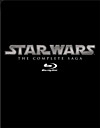 Director: A New Hope - George Lucas; The Empire Strike Back - Irvin Kershner; Return of the Jedi - Richard Marquand; The Phantom Menace - George Lucas; Attack of the Clones - George Lucas; Revenge of the Sith - George Lucas
Director: A New Hope - George Lucas; The Empire Strike Back - Irvin Kershner; Return of the Jedi - Richard Marquand; The Phantom Menace - George Lucas; Attack of the Clones - George Lucas; Revenge of the Sith - George Lucas
Writer: A New Hope - George Lucas; The Empire Strike Back - Lawrence Kasdan; Return of the Jedi - Lawrence Kasdan, George Lucas; The Phantom Menace - George Lucas; Attack of the Clones - George Lucas; Revenge of the Sith - George Lucas
Cast: Ewan McGregor; Natalie Portman; Samuel L. Jackson; Mark Hamill; Harrison Ford; Carrie Fisher; Peter Cushing' Alec Guiness
Genre: Sci-fi | Adventure
Memorable Movie Quote: "You know, I think that R2 unit we bought may have been stolen."
Distributor: 20th Century Fox Film Corporation
Release Date: A New Hope - May 25, 1977; The Empire Strike Back - May 21, 1980; Return of the Jedi - May 25, 1983; The Phantom Menace - May 19, 1999; Attack of the Clones - May 16, 2002; Revenge of the Sith - May 19, 2005
DVD/Blu-ray Release Date: September 16, 2011
{2jtab: Blu-ray Review}
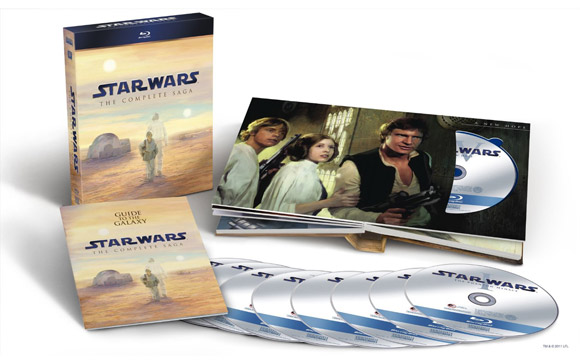
Blu-ray Details:
Available on Blu-ray - September 16, 2011
Screen Formats: 2.40:1
Subtitles: English SDH, French, Spanish, Portuguese
Audio: English: DTS-HD Master Audio 6.1; Spanish: Dolby Digital 5.1; French: DTS 5.1; French: Dolby Digital 5.1; Portuguese: Dolby Digital 5.1
Discs: 50GB Blu-ray Disc; Nine-disc set (9 BDs)
Playback: Region Free
Wow is the picture on each and every movie (Sith being the most perfect); the prequels obviously fair better than the originals, but the originals look pretty damn spectacular. Sound on all six is outstanding. The commentaries are ported over from previously released stuff, but there is a compilation interview track on each that, if you can accept its randomness, is very informative.
The complete saga box set has three discs that are not included in the separate trilogy releases. They are filled with hours of special features, but to be honest, this reviewer found them underwhelming. Content is generous, but hardly spectacular. There are vintage featurettes, many deleted scenes (awesome!), and looks at Lucas’s archives; there is a long documentary about costumers called the 501st legion: generous nerds who dress like characters to raise money for charity. There is a short retrospective on Empire that includes the last interview with Irvin Kershner. There’s a lot. But, to use a restaurant analogy, it all feels like garnish with no meat. It’s enjoyable to look at, but it doesn’t satisfy. An odd omission is the excellent feature length documentary Empire of Dreams; there are no contemporary retrospective interviews from the cast of either trilogy. I love Star Wars and this is not as definitive a celebration of Lucas’s universe as say Fox’s Alien blu ray release was, and it should be.
Perhaps that is Lucas’s plan? He has always been good at leaving us wanting more.
Supplements:
Disc 1: Star Wars: Episode I, The Phantom Menace
Audio Commentary with George Lucas, Rick McCallum, Ben Burtt, Rob Coleman, John Knoll, Dennis Muren and Scott Squires
Audio Commentary from Archival Interviews with Cast and Crew
Disc 2: Star Wars: Episode II, Attack of the Clones
Audio Commentary with George Lucas, Rick McCallum, Ben Burtt, Rob Coleman, Pablo Helman, John Knoll and Ben Snow
Audio Commentary from Archival Interviews with Cast and Crew
Disc 3: Star Wars: Episode III, Revenge of the Sith
Audio Commentary with George Lucas, Rick McCallum, Rob Coleman, John Knoll and Roger Guyett
Audio Commentary from Archival Interviews with Cast and Crew
Disc 4: Star Wars: Episode IV, A New Hope
Audio Commentary with George Lucas, Carrie Fisher, Ben Burtt and Dennis Muren
Audio Commentary from Archival Interviews with Cast and Crew
Disc 5: Star Wars: Episode V, The Empire Strikes Back
Audio Commentary with George Lucas, Irvin Kershner, Carrie Fisher, Ben Burtt and Dennis Muren
Audio Commentary from Archival Interviews with Cast and Crew
Disc 6: Star Wars: Episode VI: Return of the Jedi
Audio Commentary with George Lucas, Carrie Fisher, Ben Burtt and Dennis Muren
Audio Commentary from Archival Interviews with Cast and Crew
Disc 7: Star Wars Archives: Episodes I-III
Deleted, extended and alternate scenes
Prop, maquette and costume turnarounds
Matte paintings and concept art
Supplementary interviews with cast and crew
Flythrough of the Lucasfilm Archives
Additional Content
Disc 8: Star Wars Archives: Episodes IV-VI
Deleted, extended and alternate scenes
Prop, maquette and costume turnarounds
Matte paintings and concept art
Supplementary interviews with cast and crew
Flythrough of the Lucasfilm Archives
Additional Content
Disc 9: The Star Wars Documentaries
Star Warriors (2007, Apx. 84 Minutes): Some Star Wars fans want to collect action figures...these fans want to be action figures! A tribute to the 501st Legion, a global organization of Star Wars costume enthusiasts, this insightful documentary shows how the super-fan club promotes interest in the films through charity and volunteer work at fundraisers and high-profile special events around the world.A Conversation with the Masters: The Empire Strikes Back 30 Years Later (2010, Apx. 25 Minutes): George Lucas, Irvin Kershner, Lawrence Kasdan and John Williams look back on the making of The Empire Strikes Back in this in-depth retrospective from Lucasfilm created to help commemorate the 30th anniversary of the movie. The masters discuss and reminisce about one of the most beloved films of all time.
Star Wars Spoofs (2011, Apx. 91 Minutes): The farce is strong with this one! Enjoy a hilarious collection of Star Wars spoofs and parodies that have been created over the years, including outrageous clips from Family Guy, The Simpsons, How I Met Your Mother and more — and don't miss "Weird Al" Yankovic's one-of-a-kind music video tribute to The Phantom Menace!
The Making of Star Wars (1977, Apx. 49 Minutes): Learn the incredible behind-the-scenes story of how the original Star Wars movie was brought to the big screen in this fascinating documentary hosted by C-3PO and R2-D2. Includes interviews with George Lucas and appearances by Mark Hamill, Harrison Ford and Carrie Fisher.
The Empire Strikes Back: SPFX (1980, Apx. 48 Minutes): Learn the secrets of making movies in a galaxy far, far away. Hosted by Mark Hamill, this revealing documentary offers behind-the-scenes glimpses into the amazing special effects that transformed George Lucas' vision for Star Wars and The Empire Strikes Back into reality!
Classic Creatures: Return of the Jedi (1983, Apx. 48 Minutes): Go behind the scenes — and into the costumes — as production footage from Return of the Jedi is interspersed with vintage monster movie clips in this in-depth exploration of the painstaking techniques utilized by George Lucas to create the classic creatures and characters seen in the film. Hosted and narrated by Carrie Fisher and Billie Dee Williams.
Anatomy of a Dewback (1997, Apx. 26 Minutes): See how some of the special effects in Star Wars became even more special two decades later! George Lucas explains and demonstrates how his team transformed the original dewback creatures from immovable rubber puppets (in the original 1977 release) to seemingly living, breathing creatures for the Star Wars 1997 Special Edition update.
Star Wars Tech (2007, Apx. 46 Minutes): Exploring the technical aspects of Star Wars vehicles, weapons and gadgetry, Star Wars Tech consults leading scientists in the fields of physics, prosthetics, lasers, engineering and astronomy to examine the plausibility of Star Wars technology based on science as we know it today.
{2jtab: Trailer}
{/2jtabs}

